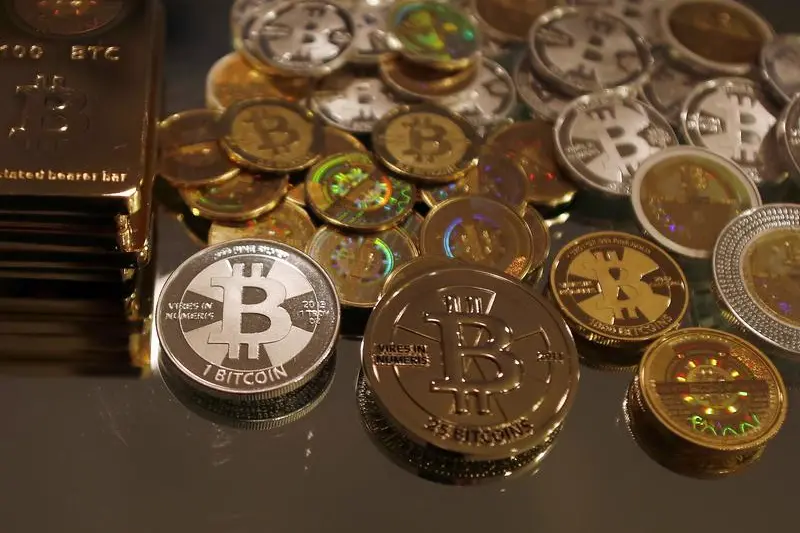PHOTO
ABU DHABI- The United Arab Emirates is working with Saudi Arabia's central bank to issue a digital currency that would be accepted in cross-border transactions between the two countries, UAE central bank governor Mubarak Rashed al-Mansouri said on Wednesday.
The digital currency would be based on blockchain, the shared ledger of transactions that is maintained by a network of computers on the internet rather than a central authority, he said in a speech to a regional financial conference. The two central banks have in the past expressed scepticism about digital currencies such as bitcoin, with the UAE central bank saying it did not recognise bitcoin as an official currency.
In July, the Saudi central bank warned against trading bitcoin because it was outside the bank's regulatory reach. On Wednesday, however, Mansouri said the central banks wanted to understand blockchain technology better. He told reporters that the UAE-Saudi digital currency would be used among banks, not by individual consumers, and would make transactions more efficient. "It is digitisation of what we do already between central banks and banks," he said.
A decade ago, the UAE and Saudi Arabia discussed the possibility of creating a single currency among members of the six-nation Gulf Cooperation Council but the UAE pulled out of the project in 2009. However, diplomatic and economic ties between the UAE and Saudi Arabia have been strengthening this year, and last week the UAE said it planned to establish a bilateral committee with Saudi Arabia on economic, political and military issues.
(Writing by Andrew Torchia; Editing by Matthew Mpoke Bigg/Jeremy Gaunt)
(andrew.torchia@thomsonreuters.com)
The digital currency would be based on blockchain, the shared ledger of transactions that is maintained by a network of computers on the internet rather than a central authority, he said in a speech to a regional financial conference. The two central banks have in the past expressed scepticism about digital currencies such as bitcoin, with the UAE central bank saying it did not recognise bitcoin as an official currency.
In July, the Saudi central bank warned against trading bitcoin because it was outside the bank's regulatory reach. On Wednesday, however, Mansouri said the central banks wanted to understand blockchain technology better. He told reporters that the UAE-Saudi digital currency would be used among banks, not by individual consumers, and would make transactions more efficient. "It is digitisation of what we do already between central banks and banks," he said.
A decade ago, the UAE and Saudi Arabia discussed the possibility of creating a single currency among members of the six-nation Gulf Cooperation Council but the UAE pulled out of the project in 2009. However, diplomatic and economic ties between the UAE and Saudi Arabia have been strengthening this year, and last week the UAE said it planned to establish a bilateral committee with Saudi Arabia on economic, political and military issues.
(Writing by Andrew Torchia; Editing by Matthew Mpoke Bigg/Jeremy Gaunt)
(andrew.torchia@thomsonreuters.com)





















